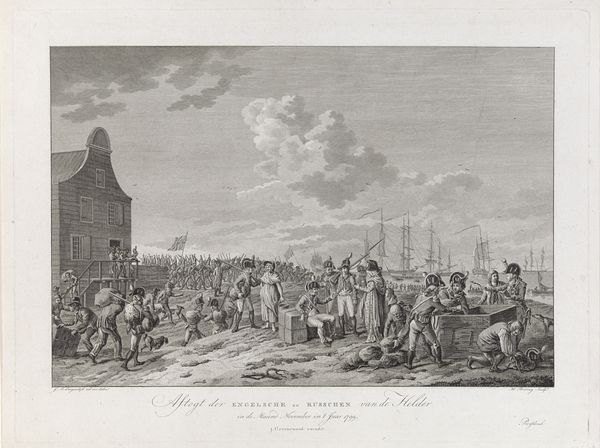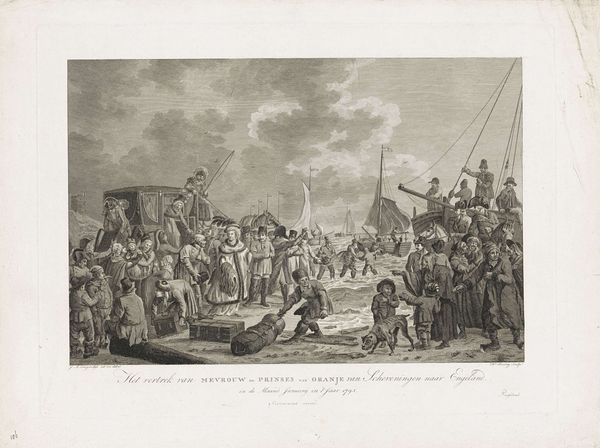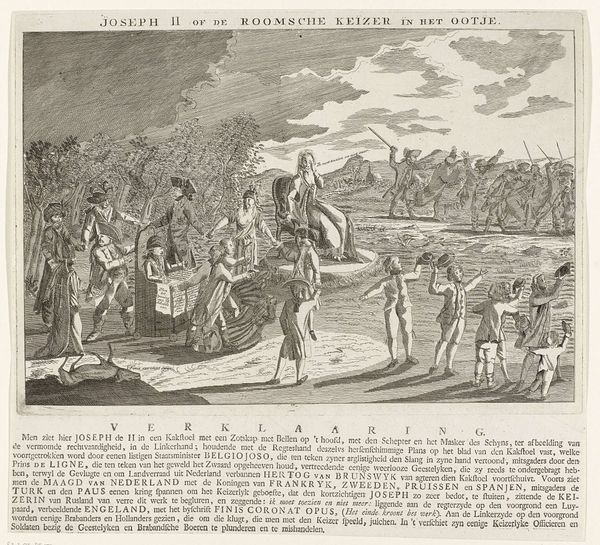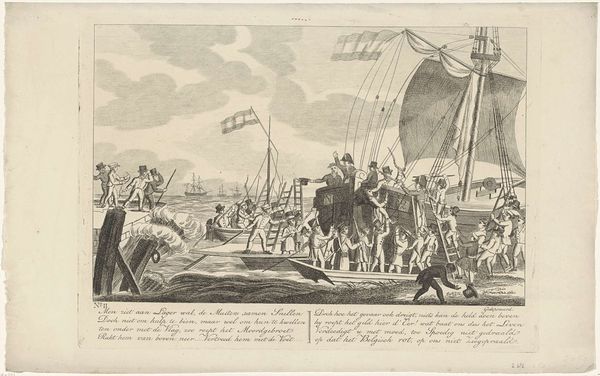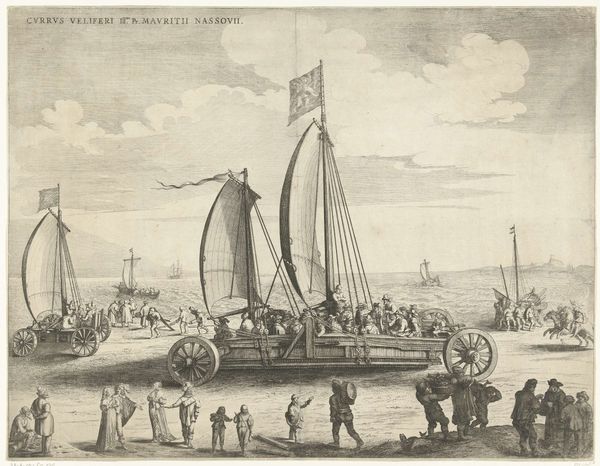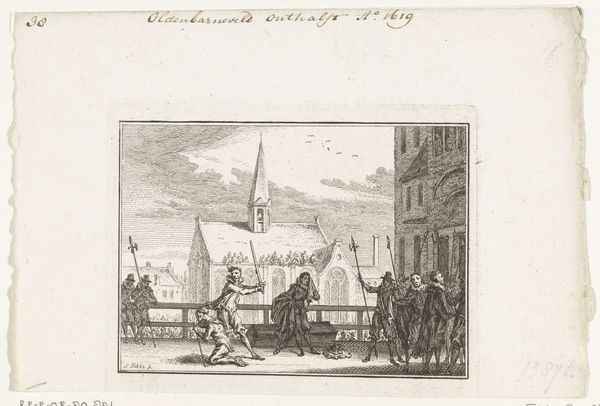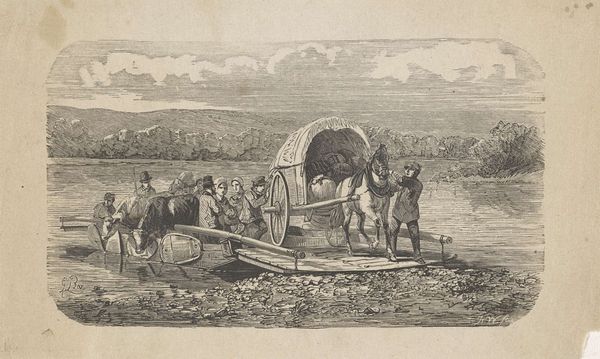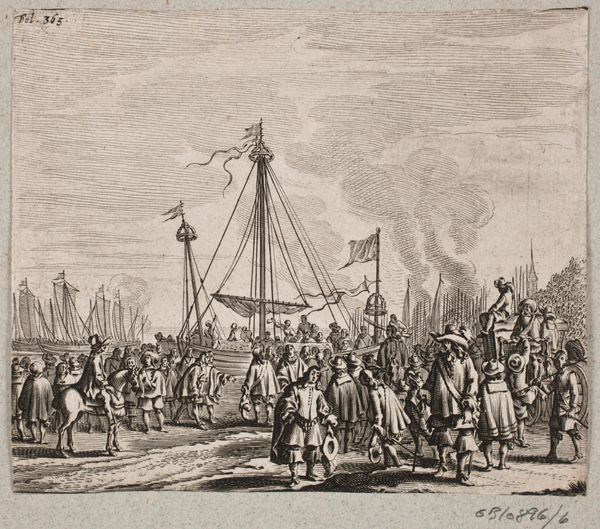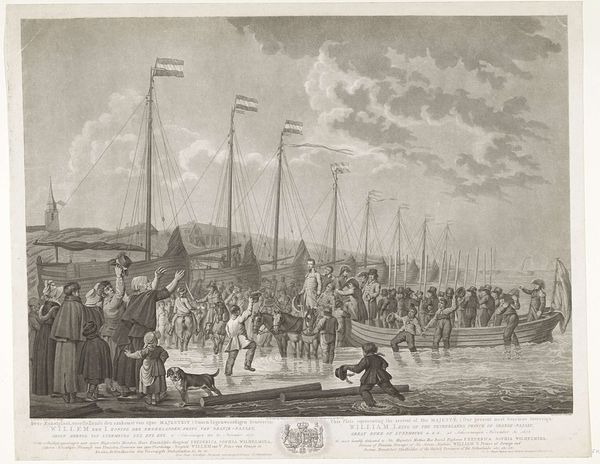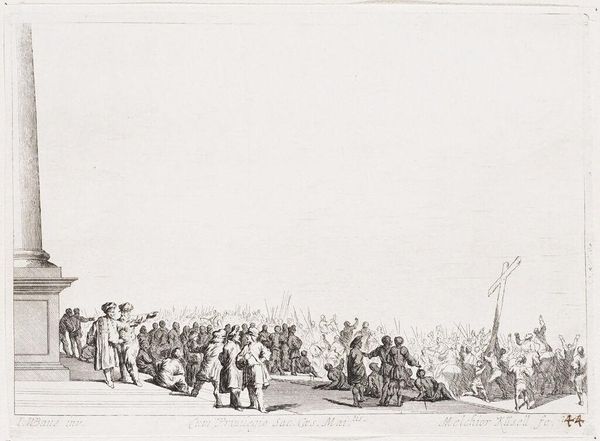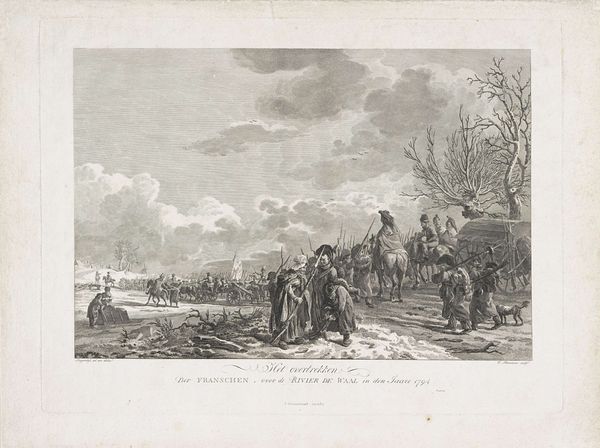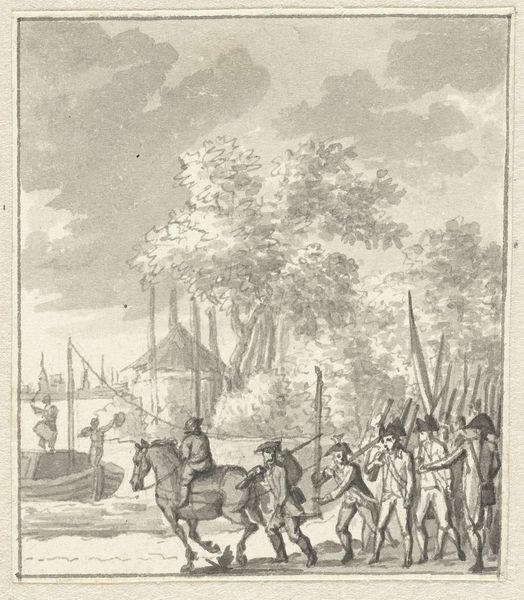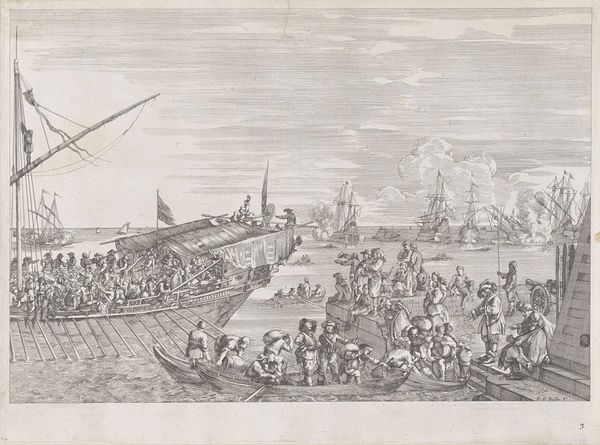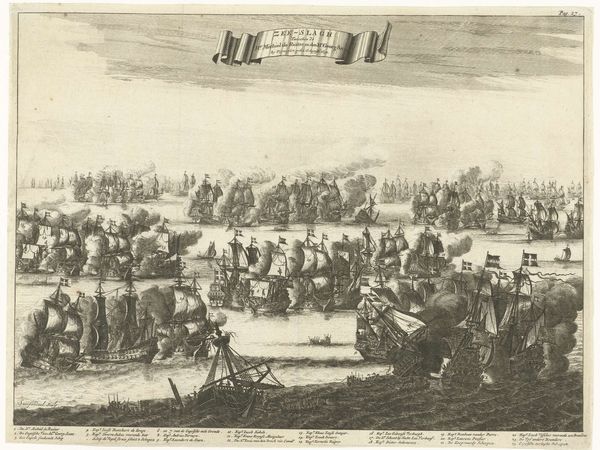
print, etching, engraving
#
narrative-art
#
dutch-golden-age
# print
#
etching
#
old engraving style
#
landscape
#
cityscape
#
history-painting
#
engraving
#
realism
Dimensions: height 255 mm, width 323 mm
Copyright: Rijks Museum: Open Domain
Editor: So, this print is called "Arrival of the Prince of Orange at Scheveningen, 1813," created around 1813-1814 by Leonardus Schweickhardt. It's an etching, capturing what must have been a monumental moment. The overall feel is, well, sort of stiff, yet with moments of chaotic celebration. What do you make of it? What stories does this image whisper to you? Curator: Whispers indeed! It feels like stepping into a play, doesn't it? The Dutch Golden Age painters knew how to stage a scene. And consider the print medium – how it democratizes the image, spreading the news like wildfire. Look at Willem’s figure; it's almost intentionally plain, yet he *is* the focal point. See how the light catches him, but the townsfolk almost blend into the sand... Why do you think the artist made that choice? Editor: Perhaps to emphasize his status, even in that 'plainness'? Curator: Exactly! And notice how everyone's facing him? The dogs running… even the boats seem to be angling in for a better view! It's like a carefully orchestrated welcome committee. The landscape itself is practically participating. Editor: It’s interesting to think about this as visual propaganda too, even subtly. I’m seeing now how that “stiffness” almost lends the scene more gravity. Curator: Precisely. History unfolding before our eyes... or rather, cleverly presented *as* history. An etching, mass-produced, helping to solidify a national narrative. It's pretty powerful stuff. You know, art has always been storytelling in disguise. It seems, what feels awkward and plain could carry quite subtle significance.
Comments
No comments
Be the first to comment and join the conversation on the ultimate creative platform.
